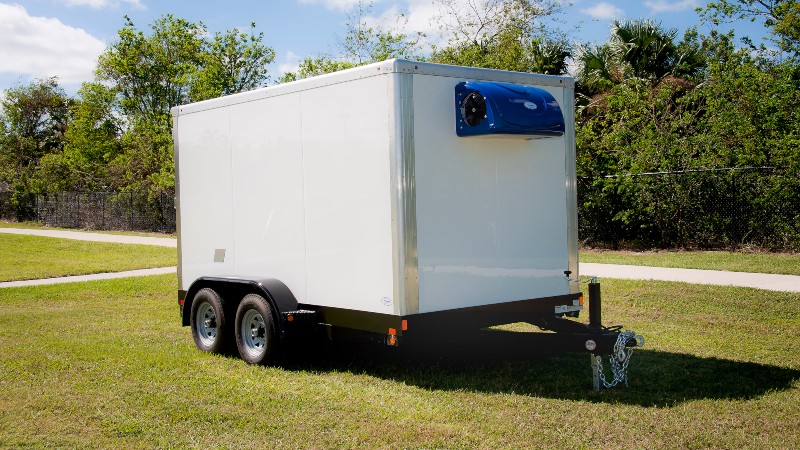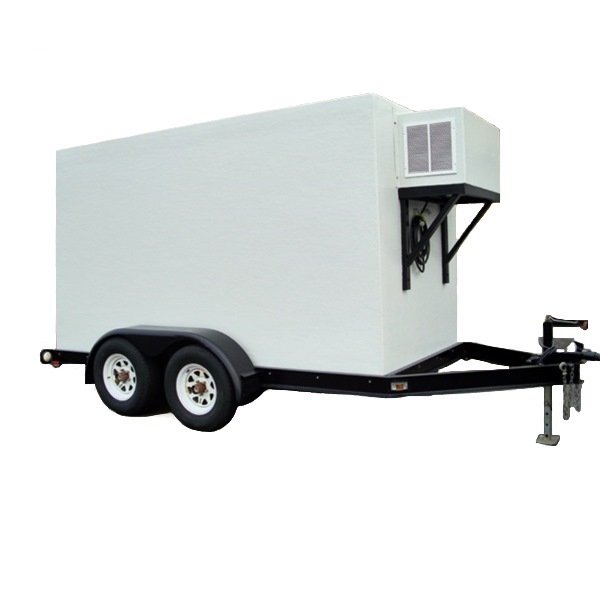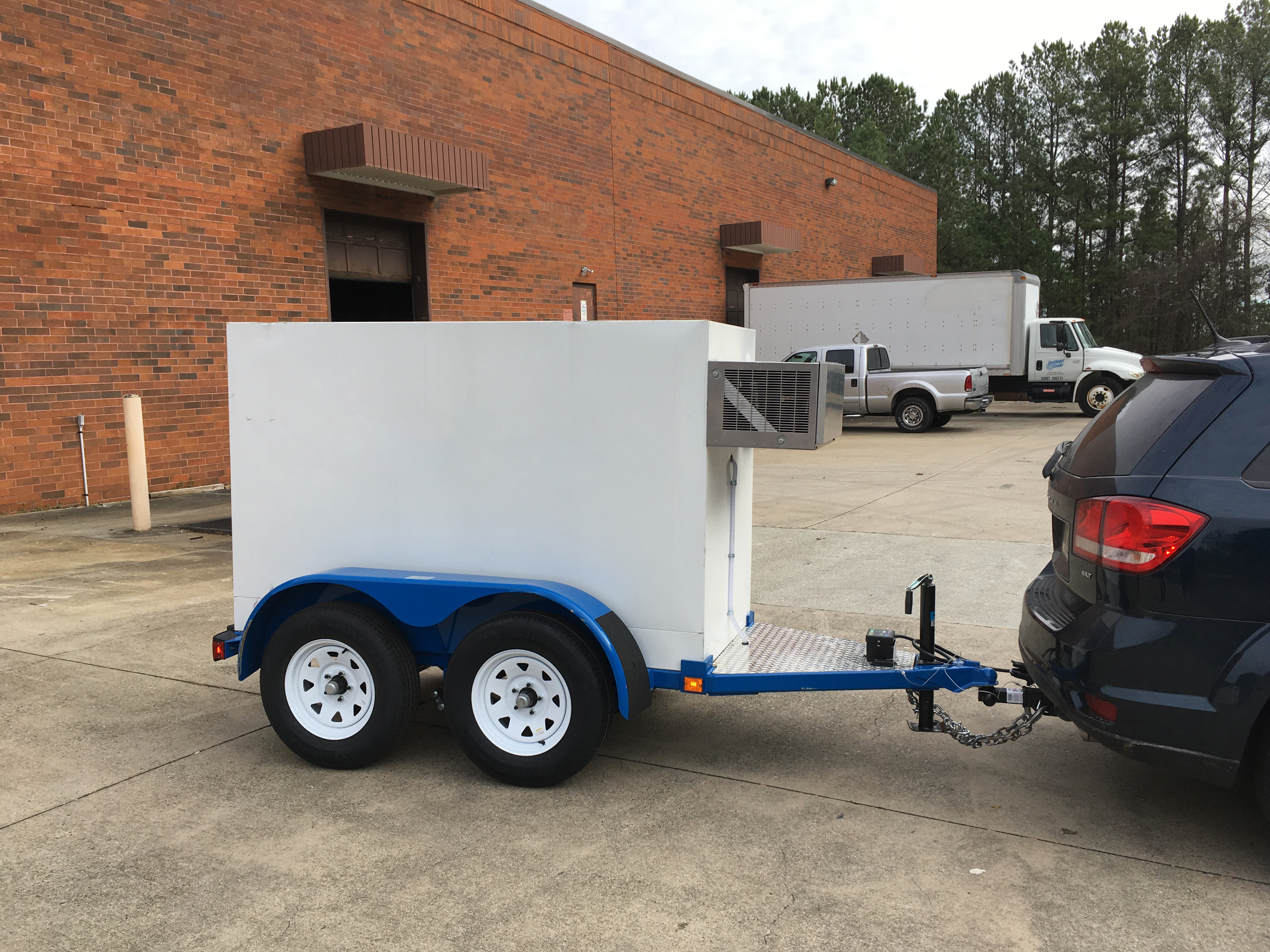Cooling Solutions on Wheels: Small Refrigerated Trailer-Cooler Trailers
The Ultimate Guide to Choosing the Ideal Refrigerated Trailers
When it comes to choosing the ideal chilled trailer for your service requirements, different elements must be thoroughly considered to ensure optimum performance and efficiency. From the various kinds of cooled trailers available to the key functions such as dimension, temperature level control, and power effectiveness, each aspect plays a crucial duty in figuring out the very best suitable for your certain requirements. In addition, maintenance and solution ideas are vital to prolonging the life expectancy of your refrigerated trailer. By discovering the complexities of these factors to consider, you will be equipped to make an educated decision that lines up with your operational goals and budget restrictions.
Kinds of Refrigerated Trailers

When thinking about the kinds of chilled trailers, it is essential to assess their certain attributes and capacities to match the transportation needs of perishable products. Both main sorts of chilled trailers are reefer trailers and shielded trailers. Reefer trailers, brief for chilled trailers, are equipped with cooling systems that actively control the interior temperature to keep disposable products at the necessary problems throughout transport. These trailers are optimal for products like fresh produce, dairy products, meat, and pharmaceuticals that need accurate temperature control - small refrigerated trailer- cooler trailers.

Size Factors To Consider
Taking into consideration the dimensions of the chilled trailer is important to make certain optimal storage ability and efficient transportation of disposable items. When selecting the dimension of a chilled trailer, it is essential to take right into account the quantity of goods that need to be delivered.
When determining the size of the cooled trailer is the dimensions of the products being delivered,An additional factor to consider. Some products may have certain dimension needs or require to be piled in a certain fashion to avoid damage. Picking a trailer dimension that accommodates the dimensions of the goods will certainly aid keep their quality throughout transportation.

Temperature Level Control Functions
Efficient monitoring of temperature level control in refrigerated trailers is critical for maintaining the high quality and safety of subject to spoiling products during transport. When choosing a refrigerated trailer, it is necessary to take into consideration the temperature control features it supplies. Search for trailers equipped with innovative temperature monitoring systems that supply real-time data on the indoor conditions. These systems need to have exact temperature setups and alerts for any kind of discrepancies, ensuring that the freight remains within the needed temperature variety.
Furthermore, some cooled trailers feature multi-zone temperature control abilities, allowing different areas to maintain varying temperature levels as needed for various kinds of items. When transferring a mix of subject to spoiling items with unique temperature level needs, this attribute is particularly useful. In addition, trailers with reliable insulation and temperature level harmony throughout the cargo space help stop warm or cold spots, making certain regular problems for all items being transported
Energy Efficiency Factors
A crucial element to evaluate when choosing a refrigerated trailer is its power efficiency, which plays a considerable role in minimizing operational expenses and ecological effect. High-quality insulation is vital as it helps preserve the wanted temperature inside the trailer with marginal energy loss. By prioritizing energy-efficient chilled trailers, companies can not just click this save on operating expenses yet additionally lower their carbon footprint, making a positive payment to sustainability efforts in the transportation market.
Upkeep and Service Tips
Offered the important role of power effectiveness in decreasing operational prices, it is necessary to establish a proactive upkeep and service regimen for refrigerated trailers to ensure ideal performance and long life. Additionally, evaluating the trailer's tires, brakes, lights, and electrical systems is crucial to ensure safe and trustworthy operation. Teaming up with a trusted solution company for regular maintenance checks and addressing any kind of problems promptly can significantly extend the life expectancy of the chilled trailer.

Final Thought
In final thought, choosing the best refrigerated trailer involves thinking about various factors such as the kind of trailer, dimension requirements, temperature control attributes, energy performance, and maintenance demands. By look at these guys reviewing these facets very carefully, services can ensure they pick a cooled trailer that fulfills their particular demands and requirements, eventually leading to a lot more efficient transportation and storage space of temperature-sensitive items.
The two main kinds of chilled trailers are reefer trailers and insulated trailers (small refrigerated trailer- cooler trailers). Reefer trailers, short for chilled trailers, are equipped with cooling systems that actively control the inner temperature level to keep perishable products at the necessary problems throughout transportation.On the other hand, protected trailers are created to keep the temperature level of the goods using the insulation residential properties of the trailer wall surfaces. While they do not have energetic air conditioning systems like reefer trailers, insulated trailers are suitable for goods that need protection from outside temperature variants however do not need as rigorous temperature level control as subject to spoiling items.Reliable monitoring of temperature level control in chilled trailers is critical for maintaining the top quality and safety and security of subject to spoiling items throughout transport